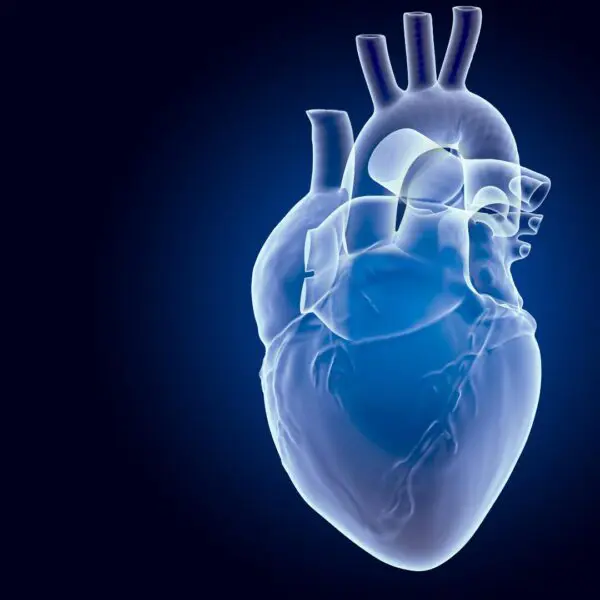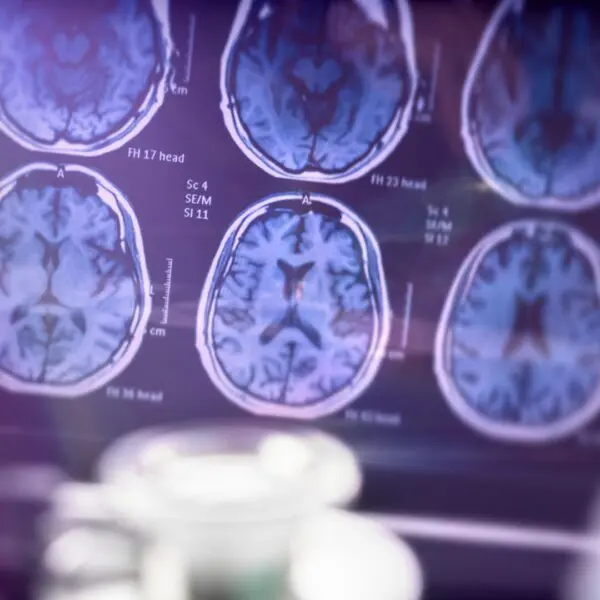Brain fog, or cognitive dysfunction, is a common complaint in our fast-paced world. It affects concentration, memory, and mental clarity, impacting work, relationships, and overall well-being. Symptoms can range from mild to severe, and understanding its causes is crucial for effective treatment.
The Many Faces of Brain Fog
Brain fog stems from various factors, including medical conditions like chronic fatigue syndrome and autoimmune disorders, mental health issues, sleep disorders, and nutritional deficiencies. Hormonal imbalances, chronic stress, sedentary lifestyle, poor diet, certain medications, and environmental toxins can also contribute. Post-viral syndromes and Lyme disease are increasingly recognized as potential culprits. Interestingly, the common denominator in most brain fog conditions is mitochondrial health.
Hormones and Brain Fog
Hormones play a pivotal role in brain function. Fluctuations in estrogen, testosterone, and other hormones during certain stages of life can lead to temporary but often pronounced cognitive difficulties. These hormones influence the production, release, and function of neurotransmitters such as serotonin, dopamine, and norepinephrine.
Hormones ultimately influence neurotransmitter production, neuroplasticity, and cerebral blood flow. They regulate glucose metabolism, inflammation, and sleep patterns. Balancing hormones can significantly improve cognitive function and alleviate brain fog symptoms.
It is important to note that while hormones can play a significant role in alleviating brain fog, they are often most effective when combined with other strategies such as lifestyle modifications, stress management techniques, and addressing underlying health conditions.
Viral Infections
Viral infections can cause brain fog through a complex interplay of physiological mechanisms. When a virus infects the body, it triggers an immune response that often leads to inflammation, including neuroinflammation, which can disrupt normal cognitive function. Some viruses may compromise the blood-brain barrier, allowing inflammatory molecules and immune cells to enter the brain. This can lead to immune system dysregulation and activation of microglia, the brain’s immune cells, potentially interfering with normal neuronal functions. and immune system dysregulation. They can also cause metabolic changes in the brain cells, impact neurotransmitter balance, and affect blood vessels, potentially reducing blood flow to the brain.
The Power of Physical Activity
Regular exercise is a potent weapon against brain fog. It increases blood flow to the brain, promotes neuroplasticity, and regulates hormones. That being said, decreased physical activity can significantly contribute to brain fog through interconnected brain mechanisms. Regular exercise improves mood and sleep quality, reducing inflammation and maintaining metabolic health. When physical activity declines, these benefits are reduced, potentially leading to cognitive symptoms. Studies have shown that aerobic exercise can increase the size of the hippocampus, a brain region crucial for memory and learning, and regular physical activity helps reduce inflammation in the body and brain.
Innovative Treatment Options
Treatment for brain fog often begins with lifestyle modifications:
- Improving sleep
- Reducing stress
- Exercising Regularly
- Following a balanced diet (like the Mediterranean diet)
- Nutritional supplementation (B-complex, omega-3 fatty acids, vitamin D)
Regenerative medicine offers exciting possibilities for treating brain fog:
- Stem Cell Therapy: Using mesenchymal stem cells (MSCs) or V cells shows promise in promoting neuroregeneration and reducing inflammation. These therapies are still being researched, but early studies show promising results.
- Hyperbaric Oxygen Therapy (HBOT): HBOT may enhance brain function by increasing oxygen supply to brain tissues and boosting Nitric Oxide (NO) production. It can stimulate stem cell release, increase telomere length, and decrease immunosenescence, all contributing to improved cognitive function.
- Peptide Therapy: Peptides like Cerebrolysin and Semax are being studied for their potential neuroprotective and cognitive-enhancing effects. These compounds may offer new avenues for treating brain fog and other cognitive disorders.
- Hormonal Therapy: The use of hormonal replacement for brain fog often includes addressing testosterone levels. Testosterone plays a crucial role in cognitive function, affecting memory, concentration, and mental clarity. Hormonal therapy’s mechanism in alleviating brain fog involves multiple pathways within the central nervous system. It promotes neuroplasticity, enhancing the brain’s ability to form new neural connections and adapt. The hormone also improves cerebral blood flow, potentially enhancing oxygen and nutrient delivery to brain tissues while exerting neuroprotective effects that may reduce inflammation and oxidative stress.
- Intermittent Hypoxia Training (IHT): IHT improves cerebral blood flow and oxygenation, supporting brain health and function. This technique enhances mitochondrial respiration and biogenesis, potentially addressing the fatigue and mental cloudiness associated with brain fog. IHT stimulates the release of neurotrophic factors like BDNF, promoting neuroplasticity and neuroprotection, which may help repair and maintain neural networks. Additionally, IHT has been found to reduce pro-inflammatory cytokines, potentially alleviating the chronic inflammation often associated with brain fog.
- Contrast Therapy & Whole-Body Cryotherapy: These therapies can increase cerebral blood flow, enhancing oxygen and nutrient delivery to brain tissues while stimulating the release of mood-elevating hormones and neurotransmitters that improve focus and cognitive function. Cold exposure, particularly in Cryotherapy, may reduce inflammation, a common factor in brain fog. Both therapies can enhance mitochondrial function, potentially addressing the fatigue and mental cloudiness associated with cognitive difficulties.
- EBO2 (Extracorporeal Blood Oxygenation & Ozonation): EBO2, a form of blood ozone dialysis, promotes better oxygenation of red blood cells, potentially enhancing mental clarity and cognitive function by increasing oxygen delivery to the brain. EBO2’s anti-inflammatory properties may help reduce inflammation in the body, including the brain, which is often associated with cognitive issues. The primary mechanism of the EBO2 procedure involves stimulating the NRF2 pathway, which can dramatically reduce inflammation in the body. The treatment also stimulates the production of antioxidants like Superoxide Dismutase (SOD), Glutathione S-Transferase (GST), and Heat Shock Proteins (HSP), which protect cells from oxidative stress and inflammation. Additionally, EBO2 aids in detoxification by cleaning the blood from debris, heavy metals, and other toxins that may contribute to brain fog.
Photobiomodulation and Brain Fog
Photobiomodulation, also known as low-level light therapy, is an emerging treatment that looks promising for alleviating brain fog and improving cognitive function. This non-invasive technique involves exposing tissue to low red or near-infrared light levels, which can penetrate the skull and interact with brain cells. The light is thought to stimulate mitochondria, the powerhouse of cells, leading to increased energy production and improved cellular function.
Research suggests that photobiomodulation may help brain fog by enhancing cerebral blood flow, reducing inflammation, and promoting neuroplasticity. By increasing blood flow to the brain, this therapy can improve the delivery of oxygen and nutrients to brain cells, potentially enhancing mental clarity and cognitive performance. Additionally, photobiomodulation has been shown to stimulate the production of brain-derived neurotrophic factor (BDNF), a protein crucial for neuroplasticity and new neural connections. This process may improve learning, memory, and overall cognitive function.
The Role of Intravenous Therapies
Intravenous therapies have gained popularity for their potential to replenish nutrients and support optimal brain function quickly. Some options for intravenous therapies are:
- Myers Cocktail: A nutrient-rich infusion typically containing B vitamins, vitamin C, magnesium, and calcium that potentially helps to boost energy levels, improve mental clarity, and enhance overall well-being. The B vitamins in particular play crucial roles in neurotransmitter synthesis and energy metabolism in the brain, while magnesium is involved in numerous biochemical reactions that support cognitive function.
- NAD⁺ (Nicotinamide Adenine Dinucleotide) Therapy: NAD⁺ is a coenzyme found in all living cells and plays a vital role in cellular energy production and DNA repair. As we age, NAD⁺ levels naturally decline, which some researchers believe may contribute to cognitive decline. Intravenous NAD⁺ therapy aims to replenish these levels, improving mental clarity, focus, and overall brain health.
- Glutathione: Often referred to as the body’s master antioxidant, is crucial in neutralizing free radicals and reducing oxidative stress throughout the body and the brain. By administering glutathione intravenously, practitioners aim to enhance the body’s antioxidant defenses and improve brain function.
- High-Dose Vitamin C: Vitamin C is a potent antioxidant that supports immune function and collagen synthesis. Researchers believe that high doses of vitamin C may help combat inflammation and oxidative stress in the brain, potentially improving cognitive function.
- Phosphatidylcholine: This compound (a significant component of cell membranes) is crucial for maintaining the fluidity and integrity of cell membranes, including those of brain cells. Practitioners believe administering phosphatidylcholine intravenously may help improve cell membrane function, potentially enhancing neurotransmitter signaling and overall cognitive performance.
Emerging Intravenous Therapies
PUR-FORM is pioneering cutting-edge IV therapies with two promising compounds: Resveratrol and Epigallocatechin Gallate (EGCG).
EGCG, the most potent catechin in green tea, is known for its antioxidant properties and potentialcognitive benefits. IV administration of EGCG may bypass limitations of oral consumption, potentially leading to higher brain concentrations. It may help reduce oxidative stress, modulate neurotransmitter activity, and promote neurogenesis. Some studies indicate EGCG could improve blood flow to the brain, potentially enhancing cognitive function and reducing brain fog. We’re excited to offer intravenous EGCG.
Additionally, IV administration of CoQ10 may offer benefits for brain fog by increasing its bioavailability. This method could support mitochondrial function and reduce oxidative stress in brain cells more efficiently than oral supplementation. Some studies show CoQ10 can improve cognitive function and reduce fatigue, common issues in brain fog. Its anti-inflammatory properties may also address underlying factors contributing to cognitive difficulties. Here at PUR-FORM we offer intravenous CoQ10.
The Role of Oral Supplements
Oral supplements also play a crucial role in fighting brain fog. Omega-3 fatty acids, adaptogenic herbs like Rhodiola rosea and Ashwagandha, and cognitive enhancers such as Lion’s Mane mushroom and Bacopa Monnieri have shown potential in improving mental clarity and cognitive function.
Pre & ProBiotics
The growing understanding of the gut-brain axis has increase interest in microbiome modulation to improve cognitive function. Emerging research suggests optimizing the gut microbiome through probiotics, prebiotics, and dietary interventions may positively affect brain health and mental performance.
A Holistic Approach to Mental Clarity
Here at PUR-FORM, we understand that combating brain fog requires a comprehensive approach. Under the expert guidance of Dr. Purita, M.D., we offer a full spectrum of innovative treatments. From photobiomodulation to EBO2, peptide therapies to IV therapies, we’re committed to providing the most advanced options for brain health.
Don’t let brain fog hold you back. Step into a world of cognitive clarity with PUR-FORM, where we’re not just treating symptoms – we’re revolutionizing brain health. Your journey to peak mental performance starts here!
-Dr. P
You may also enjoy reading:














